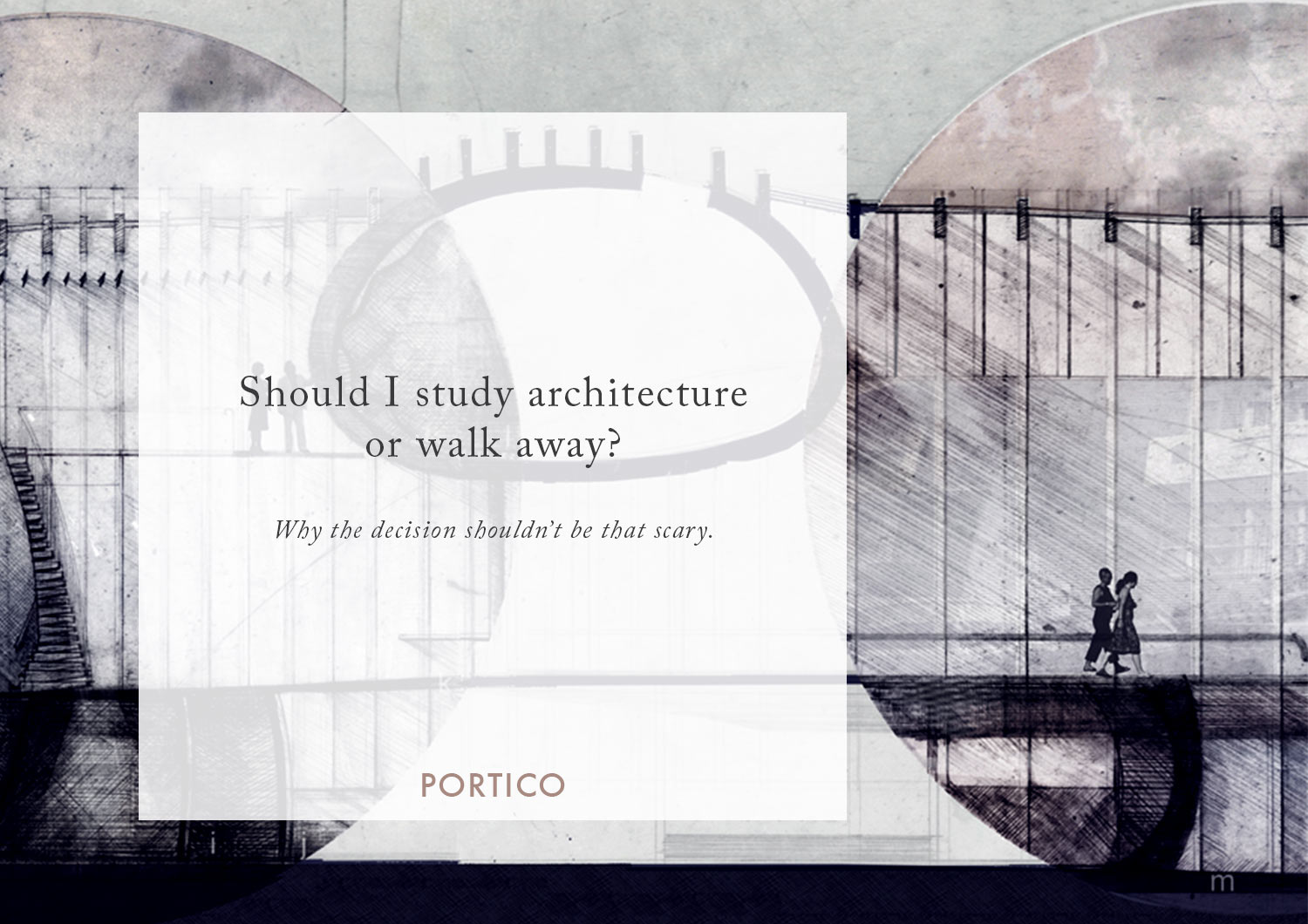DECIDING TO STUDY ARCHITECTURE
I think I want to study architecture, but I’m not 100% sure.
I'm worried this decision make or break my life!
Sound familiar? At the time, choosing what to do after you are released from the structure of high school is daunting. There are new options every minute, and everyone you speak to seems to have an exciting future planned out.
Before I left school, I was set on, and then discarded, about five different 'life plans' within the course of Year 13. In fact, it wasn't until January of the next year - about two weeks before I was supposed to move to another city and begin studying Law and Chemistry - that I switched track completely and choose architecture.
Having made that decision, and met an incredible group of people who all came to the same decision by different routes, I can let you in on a little secret.
Either you study architecture, or you don’t.
It's that simple. And does it matter? To answer that, let's have a look at the outcomes, and at what might happens if you make the 'wrong' decision.
What if I study architecture, and don't enjoy it?
As with many things in life, you won't know exactly how you feel about it until you jump in. If you study architecture, there are millions of possible outcomes. Let’s boil them down to four:
You study architecture, you love it, you finish and become an architect.
The dream outcome, right? Yes, but if you are too focused on this, you might be limiting yourself to other exciting pathways. Especially when, let’s be honest, this must happen about 10% of the time.
You study architecture and you love it. But when you finish, you head off overseas, and life unfolds in unexpected and exciting ways.
When you are starting out, it can seem like a waste of time to consider not becoming an architect when you finish. In reality, an architecture degree equips you with a vast range of skills - including sought after critical and analytical thinking, creativity and problem solving. Many students of architecture go on to excel in adjacent fields and seemingly unrelated areas.
You study architecture and you enjoy it, but towards the end of the 5 year course you realise it’s not for you.
You leave and become and entrepreneur or freelance as a writer or go into construction management or who knows. As above, you have developed important skills, and have likely gained not-to-be-underestimated clarity around your path.
You study architecture, and realise after 6 months or a year that it's not for you.
Maybe you’re not quite ready or you would like to study something else. Newsflash: this happens to a significant number of students in a range of courses. Is it the end of the world? No. If you’re lucky, you’ll be able to transfer some courses and continue on with another degree. If not, you will have learnt invaluable skills - and things about yourself - in the meantime.
what if it's not for me?
On the other side of the coin, if you don’t study architecture, there are also millions of possible outcomes. Life is broad and unpredictable like that.
You don’t study architecture, and move off in another direction.
But your creativity / analysis stand you in good stead in your alternative career. And, you can continue to feed your architecture brain through travel, and being the client or instigator of your own projects.You don’t study architecture, but always wish you had.
Lucky for you, it is never too late. Mature students bring an invaluable depth of understanding of people, places, and the real world to architecture projects. Yes, it can be more of a gamble when you are older, but the option is never gone.
the once-upon-a-time architect
Architects don’t like to admit it, but we probably need people who don’t practice architecture, but have an interest in it, more than we need architects! These people are proponents for urban change, they are the people who get behind great cities, and who have the various positions, visions and finances to support great architecture. Whether you choose to study architecture or not, you can maintain an interest in the role of the building environment in our societies, and find ways to be engaged in the future.
So, my advice?
If you're thinking about it, if you can't get if out of your mind, go for it.
If you're thinking about studying another arts and design type of subject, give architecture a shot first. There are a number of transferrable skills, so you'll set yourself up will for a second option.
If you're thinking about other options, for reasons that might come back with a vengeance later - give something else a go. But hold on to the value of architecture.

